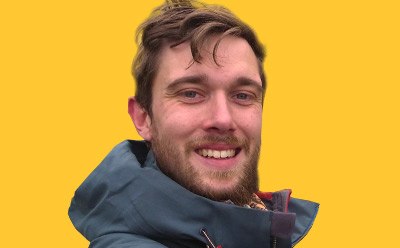Philipp Maurischat: My Next Great Impossible

Philipp Maurischat is a bio-geoscientist at Germany's Leibniz University in Hannover. He talked to us about his recent interest in nature-based solutions to remove impurities from streams and rivers.
We have many challenges that I would like to act on for the betterment of local communities. My Next Great Impossible is to compare and sample different stream networks, from agricultural plots down to the ocean, to investigate the persistence of run-off signatures at different management zones along the stream.
“With my research, I hope to demonstrate that the drawbacks of intensified agriculture can be mitigated by river rewilding.”
I believe that humankind should use land in a way that leaves its beauty and the health of nature intact. My research will be conducted on European ditch-river systems with intense agricultural land use. We will be working in the riparian zone, which connects soil science, hydrology and limnology, where we will apply cutting-edge techniques such as ultra-high-resolution mass spectrometry, stable isotope labelling and tracer studies. By working towards restoring rivers, we aim to gain a lot of benefits such as fish migration, diverse landscapes and a higher water quality. With my research, I hope to demonstrate that the drawbacks of intensified agriculture can be mitigated by river rewilding.
“Decisions should be guided by the ethics of science.”
I take inspiration from my professors who taught me during my bachelor's degree program and my doctoral supervisor. Both academics approach their work with curiosity and a sense of enthusiasm that drives them to succeed. I also admire Thomas S. Kuhn's work, which in The Structure of Scientific Revolutions showed how bias exists in academia. His book raised awareness of the daily challenges faced by academics; for example, when challenging a scientific belief, you are frequently met with skepticism at first. In these cases, decisions should be guided by the ethics of science.
“Doing research comes with great freedom; the freedom to choose a topic and follow ideas you are curious about.”
When an idea is challenged in the scientific community, it is often met with opposition and skepticism. During my PhD, I worked in Tibet; the general assumption was that a lot of permafrost was located in the ground, yet, surprisingly, we found no low ground temperatures and no ice. This called into question our understanding of the Tibetan highland cycle, nutrients and carbon storage – a difficult concept to grasp in the scientific community. Despite its challenges, doing research comes with great freedom; the freedom to choose a topic and follow ideas you are curious about. But, to discover meaningful research findings, we must stay focused on one research path and constantly ask ourselves if we are on the right path or if we went down a rabbit hole for the wrong reasons.
FAQ
Q: What kind of mindset do you need to achieve your Next Great Impossible?
A: Following ideas that you are curious about but remaining aware that new ideas are vulnerable to skepticism; you must have the discipline to pursue your idea even in the face of adversity.
如要继续阅读,请登录或创建帐户。
暂无帐户?